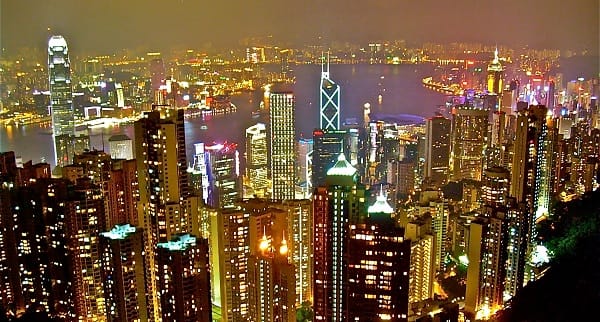Organisers of a massive rally in Hong Kong’s financial district have said that more than half a million people had turned up on the anniversary of Hong Kong’s return to Chinese rule on 1 July, demanding that Beijing grants them the right to choose their own leader freely. Police arrested 511 protestors, which included lawmakers.
An unofficial referendum, held by the pro-democracy group Occupy Central on 20-29 June, proposed three electoral options, all of which would allow Hong Kong residents to freely nominate candidates for the 2017 elections for the territory’s chief executive. The high turnout – of over 790,000 voters, or more than one fifth of eligible voters – was prompted by anger towards a White Paper recently released by China’s State Council that sought to draw limits over Hong Kong’s autonomy, which has been read as Beijing’s attempt to reassert dominance over Hong Kong.
Dangerous polarisation?
Is the political situation in Hong Kong dangerously polarised, as some observers claim?
Hongkongers are not entirely united against Beijing. Some are pragmatists who are not inclined towards radical street politics. A recent survey by Hong Kong University indicated that more Hong Kong residents view China positively than negatively. Business leaders in particular have opposed the pro-democracy protests, due to Occupy Central’s threat to bring the city’s commercial hub to a standstill. This means that in a free election, Hongkongers could still conceivably choose a pro-China candidate.
Nevertheless, Beijing’s White Paper and the way it was presented to the Hong Kong public was “a failure of communication with Hong Kong”, its tone akin to “a parent chastising a child”, as the Hong Kong media put it. Beijing certainly feels alarmed over the recent political sentiments in Hong Kong, over what it feels are non-negotiable matters of sovereign control. But in resorting to such a confrontational stance, Beijing is merely reinforcing a “them versus us” mentality among Hongkongers, who are beginning to regard Beijing as a foreign government imposing its will on them. This is fuelled by ill-conceived statements made in media outlets such as Global Times, whose parent newspaper People’s Daily is the Chinese government’s official publication. One recent report said: “However many involved in illegal referendum [sic], it can’t match 1.3 billion [people in mainland China].”
Even the Hong Kong Chief Executive C.Y. Leung was forced, by the mounting discontent in Hong Kong, to criticise the Global Times editorial. For him, there is the stark reminder that Hong Kong’s first Chief Executive, Tung Chee Hwa, was forced to step down in 2005 over a controversial anti-subversion law that his administration tried to bulldoze through together with Beijing – the result of massive protests and an ensuing political crisis.
Sources:
Beijing cannot scold its way to a solution to the ‘Hong Kong problem’ [South China Morning Post, 30 June 2014]
HK leader hits back at Chinese media over democracy poll [Channel NewsAsia, 24 June 2014]
Why did Hong Kong hold unofficial democracy referendum? [BBC, 30 June 2014]
A showdown looms [The Economist, 21 June 2014]




